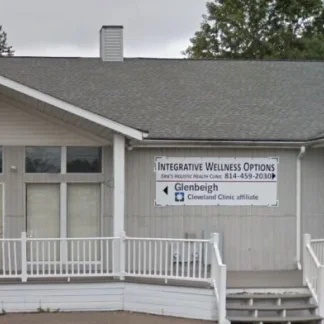Gaudenzia - Dr. Daniel Snow Halfway House
Gaudenzia - Dr. Daniel Snow Halfway House is located in Erie, Pennsylvania. Gaud...
Glenbiegh Outpatient Center - Richmond Street offers different programs for individuals with alcohol and/or substance addiction. The treatment includes family support, continuing care groups, assessments and more. Glenbiegh Outpatient Center - Richmond Street is located at Erie, Pennsylvania.
Contact us for more information: (814) 864-4226

Connect with Glenbiegh Outpatient Center by calling their admissions team directly.
(814) 864-4226 Website Get DirectionsThe Joint Commission, formerly known as JCAHO, is a nonprofit organization that accredits rehab organizations and programs. Founded in 1951, the Joint Commision's mission is to improve the quality of patient care and demonstrating the quality of patient care.
Joint Commission Accreditation: Yes
Alcoholism and drug addiction is a disease that affects entire families, meaning all members of the family will have experienced hurt, disappointment and disruption in their lives as a result of their loved one’s disease. Glenbeigh Outpatient's Family Program offers support and guidance as family members explore recovery with their loved one. Services include educational presentations, family conferences and group sessions to assist in developing an understanding of addiction and recovery. Glenbeigh helps families develop an active recovery program that will benefit everyone. Because this is such a crucial component of the entire treatment process, Glenbeigh provides this service at no additional charge to the patient or family.
Group therapy is any therapeutic work that happens in a group (not one-on-one). There are a number of different group therapy modalities, including support groups, experiential therapy, psycho-education, and more. Group therapy involves treatment as well as processing interaction between group members.
In individual therapy, a patient meets one-on-one with a trained psychologist or counselor. Therapy is a pivotal part of effective substance abuse treatment, as it often covers root causes of addiction, including challenges faced by the patient in their social, family, and work/school life. Individual sessions are made by appointment only during hours of operation. It is not part of the treatment, but it is offered when necessary.
Group therapy is any therapeutic work that happens in a group (not one-on-one). There are a number of different group therapy modalities, including support groups, experiential therapy, psycho-education, and more. Group therapy involves treatment as well as processing interaction between group members.
In individual therapy, a patient meets one-on-one with a trained psychologist or counselor. Therapy is a pivotal part of effective substance abuse treatment, as it often covers root causes of addiction, including challenges faced by the patient in their social, family, and work/school life. Individual sessions are made by appointment only during hours of operation. It is not part of the treatment, but it is offered when necessary.
In individual therapy, a patient meets one-on-one with a trained psychologist or counselor. Therapy is a pivotal part of effective substance abuse treatment, as it often covers root causes of addiction, including challenges faced by the patient in their social, family, and work/school life. Individual sessions are made by appointment only during hours of operation. It is not part of the treatment, but it is offered when necessary.
Gaudenzia - Dr. Daniel Snow Halfway House is located in Erie, Pennsylvania. Gaud...
Gaudenzia – Crossroads offers evidence based and person centered treatment for a...
Al-Anon is located in Erie, Pennsylvania. Al-Anon is for the families & frie...
Mill Creek Community Hospital – Substance Abuse is a private rehab located in Er...